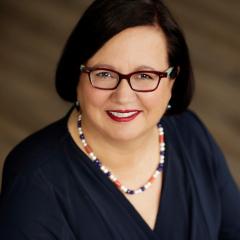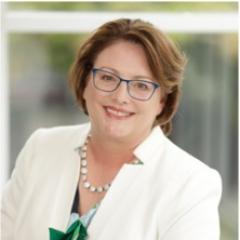The Queensland Cerebral Palsy Research and Rehabilitation Centre had four PhD students graduate on Friday, 14 July, who contributed to furthering our understanding of cerebral palsy (CP) and towards improving the quality of life for children with CP and their families.
Dr Rose Gilmore, Dr Nataya Branjerdporn, Dr Swetha Philip and Dr Rebecca Ceasar all graduated as part of UQ’s 2023 mid-year graduations.
Queensland Cerebral Palsy Research and Rehabilitation Centre’s Director, Professor Roslyn Boyd said all four graduates made unique contributions to the field of research of CP.
“We are extremely proud of the work our graduates produced and the contributions they have made to QCPRRC and to cerebral palsy more broadly,” Professor Boyd said.
Dr Rose Gilmore is a senior Occupational therapist at the Queensland Paediatric Rehabilitation Service at the Queensland Children’s Hospital. Dr Gilmore researched adolescents with brain injuries and the difficulties with social interaction and participation.
Thirty-six adolescents (18 females) with a diagnosis of acquired brain injury or cerebral palsy tested the Program for the Education and Enrichment of Relational Skills (PEERS) program. The PEERS program is an evidence-based social skills treatment program for adolescents and adults with autism spectrum disorder (ASD). Dr Gilmore tested PEERS in a CP and brain injury context. The group met for 90 minutes each week, for 14 weeks, while their parents met to focus on social coaching skills.
PEERS was effective in improving social knowledge and social participation in adolescents with CP and brain injury. The majority of the participants valued the program and the sense of connection with others facing similar challenges as well as perceiving changes in social functioning.
Dr Natya Branjerdporn is an occupational therapist who works as global lead of advocacy and strategy at Orygen.
Dr Branjerdporn researched the efficacy of Learning Through Every Day Activities with Parent for infants at high risk of CP (LEAP) in a low-and-middle income country (India), for young children with CP to improve parent and child emotional availability.
Her research was embedded within the LEAP randomised-controlled trial conducted in West-Bengal, India, evaluating the effectiveness of a multi-domain community disability worker providing rehabilitation compared to health advice in infants with a high risk of CP.
The research tentatively suggests that parents who had access to a LEAP trained community disability worker had higher caregivers’ emotional availability outcomes compared to the families who received health advice. They found that poverty played an adverse role in a low-and-middle income country context. The study found that there may be a benefit of using relationship-focussed and coaching approaches.
Associate Professor Swetha Philip joined QCPRRC as a paediatric ophthalmologist from Vellore, India. Dr Philip’s PHD examined the relationship between brain structures and features of cerebral visual impairment (CVI) in children with CP. Early brain damage in children not only leads to physical impairments such as CP but can also result in visuo-perceptual as well as visuo-cognitive dysfunctions known as cerebral visual impairment.
The prospective cohort study included 104 children, from 7 months to 14 years of age with a confirmed diagnosis of CP who underwent a complete ophthalmological and a CVI assessment.
The study found that CVI is a very common comorbidity in children with CP and confirms the heterogeneity in CVI presentation. Clinical features of CVI do not involve just damage to the dorsal and ventral streams but rather more diffuse involvement of different brain structures, which may help explain the varied clinical presentations. Early recognition of CVI features and understanding its implications, would enable referral to CVI based rehabilitation intervention programs. Dr Philips’ thesis highlights the importance of complete ophthalmological examination including a CVI assessment in any child with history of early brain injury.
Dr Rebecca Caesar is a senior physiotherapist at the Sunshine Coast University Hospital. Dr Caesar’s research aimed to identify early clinical biomarkers from birth to 16 weeks corrected age (C.A.) to predict typical outcome and mild motor and cognitive delays at 24 months C.A. in very preterm and very low birth weight infants (VLBW).
She inducted a prospective cohort of very preterm and/or VLBW infants between preterm birth and 16 weeks corrected age (C.A) and assessed them using four clinical assessment tools: General Movement Assessment, the Premie-Neuro Examination, the Alberta Infant Motor Scale and the Infant Sensory Profile 2. At 24 months C.A., motor and cognitive delays were identified using the Bayley Scales of Toddler and Infant Development Third Edition and the Neurosensory Motor Developmental Assessment.
A systematic review determined the accuracy of all clinical tools used at 6 months C.A. or younger to predict motor and cognitive delay (not cerebral palsy) at 24 months C.A., in infants born very preterm.
Findings from both the systematic review and the prospective cohort study indicated that only the General Movement Assessment tool had sufficient predictive validity to act as a biomarker for both conditions, typical outcome and developmental delay (motor or cognitive).
QCPRRC currently have a number of prestigious (Cat 1) PHD scholarships available, click here for more information or email us at qcprrc@uq.edu.au



